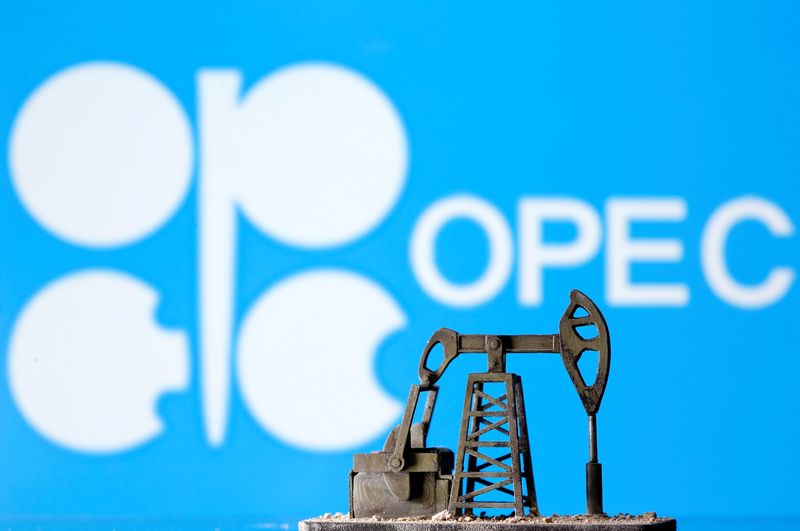By Alex Lawler
LONDON (Reuters) - OPEC oil output dropped in February as a voluntary cut by Saudi Arabia added to reductions under a supply limiting agreement, a Reuters survey found, ending a run of seven consecutive monthly declines.
The 13-member Organization of the Petroleum Exporting Countries pumped 24.89 million barrels per day (bpd) in February, the survey found, down 870,000 bpd from January. This is the first monthly decline since June 2020.
OPEC and allies, known as OPEC+, decided to keep supply mostly steady for February and Saudi Arabia made an extra cut on concern of a slow demand recovery. With oil rising to a 13-month high last week, OPEC+ is set to discuss pumping more at a meeting on Thursday.
"So far, the members of the alliance have been cooperating and implementing the cuts in exemplary fashion," said analyst Eugen Weinberg of Commerzbank (DE:CBKG).
"We believe that the high prices will prompt OPEC+ to step up its production by 500,000 barrels per day, while at the same time withdrawing Saudi Arabia's additional production cut."
In February, the biggest supply cut came from top exporter Saudi Arabia, which pledged a 1 million bpd output reduction for February and March to ensure inventories do not build up.
Riyadh made about 850,000 bpd of the reduction, according to the survey. Consultants including PetroLogistics, which tracks tanker shipments, said Saudi exports remained higher than expected last month.
The Saudi move means OPEC is pumping much less than called for by the OPEC+ deal. Compliance with pledged cuts in February was 121%, the survey found, up from 103% in January.
IRAN PUMPS LESS
Other notable reductions came from Iran and Angola.
Iran, which is exempt from OPEC cuts and hoping to raise exports if U.S. sanctions are eased, supplied less crude in February as a surge in exports appeared to run out of steam.
Nonetheless, its exports and production remained higher than many months of 2020.
Angola scheduled fewer cargoes for export in February and Libyan output declined after a port strike disrupted shipments.
Among countries pumping more, Nigeria posted the biggest gain of 100,000 bpd after exports of Qua Iboe, one of the country's largest production streams, recovered.
Venezuela, contending with both U.S. sanctions and a long-term decline in output, also posted a rise in supply.
The Reuters survey aims to track supply to the market and is based on shipping data provided by external sources, Refinitiv Eikon flows data, information from tanker-trackers such as Petro-Logistics and Kpler, and information provided by sources at oil companies, OPEC and consultants.
(additional reporting by Ahmad Ghaddar and Rania El Gamal, Editing by)
